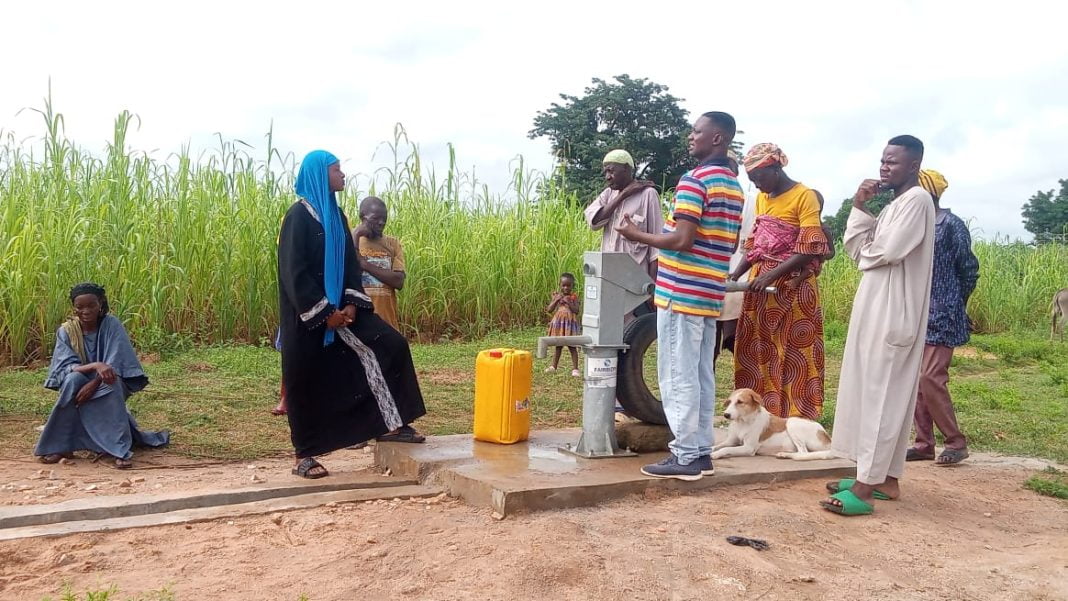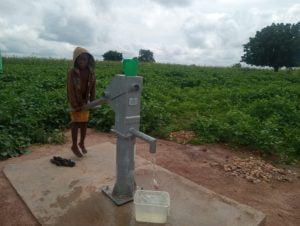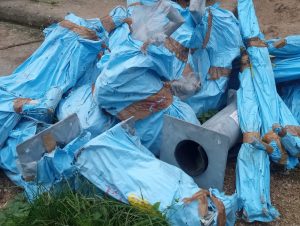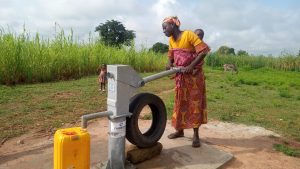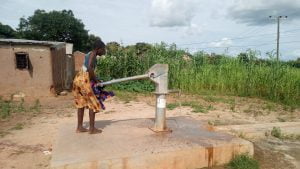Access to potable water remains a significant challenge across many communities in the Upper East Region of Ghana.
Out of the 15 political districts in the region, none has made significant strides toward achieving Sustainable Development Goal 6, which focuses on ensuring clean water access for all.
However, the Binduri District, created in 2012, stands as an emerging success story in this ongoing struggle.
Binduri, one of the youngest districts in the Upper East Region, has long relied on inadequate and often contaminated water sources.
Women and children have traditionally borne the brunt of this challenge, walking miles to collect water from streams, wells, and boreholes that frequently dry up during the dry season.
In a region where water scarcity is a daily reality, the situation has had a ripple effect on health, education, and livelihoods.
Hawa Amadi, a 43-year-old mother of five from the Goduri Yampuuna community, described the hardship of fetching water: “We would walk several miles to get water, only to return home with dirty water that sometimes made our children sick.”
Achirga Mustapha Abilla, a 34-year-old father of four, echoed these sentiments.
Living near a stream, he explained, “We relied on this water for everything—drinking, cooking, and washing. But it wasn’t always safe, and during the dry season, it would run dry.”
In the Zaago community, Ndabugr Rashid, a 39-year-old father of six, also lamented the daily struggle for potable water.
“My wives and children would travel long distances just to fetch water, and it affected our farming because they couldn’t help out on the farm during the dry season,” he recounted.
The GH¢6 Million Borehole Project: A Game Changer
In response to the dire water situation, the Member of Parliament for Binduri, Abanga Abdulai, has launched a GH¢6 million project aimed at alleviating water scarcity.
The initiative, funded from his personal resources, seeks to construct 200 new boreholes and rehabilitate over 60 existing ones across the district, benefiting more than 50,000 residents.
The boreholes, each costing approximately GH¢30,000, are equipped with modern pumps to ensure year-round water access.
Since winning the parliamentary seat in 2020, Abdulai has already delivered 142 boreholes. His goal is for each of the district’s 12 electoral areas to have at least 24 boreholes, aiming for one borehole to serve every 10 households.
“This project is primarily to ease the burden on women and children, who have been most affected by the lack of potable water,” Abdulai stated.
The project has been transformative for the residents. Amadi expressed her relief, saying, “Now, we have water just a few meters from our homes. It’s clean, and it has changed our lives.”
Similarly, Rashid noted that the boreholes would enable them to engage in dry-season farming, thereby increasing food production.
Challenges and Opportunities
Despite its successes, the project has faced challenges, particularly during the rainy season. The poor road network in some areas has made it difficult to transport drilling equipment, delaying the completion of boreholes.
Some opinion leaders also expressed the belief that the project could help reduce conflicts over water, which have historically been a source of tension during the dry season.
For Binduri’s residents, the borehole project is more than just an infrastructure upgrade—it’s a lifeline.
As the district continues its journey toward water security, it offers hope for a future where access to clean water is not a privilege but a fundamental right for all.
Source: A1Radioonline.com|101.1Mhz|Moses Apiah|Ghana

